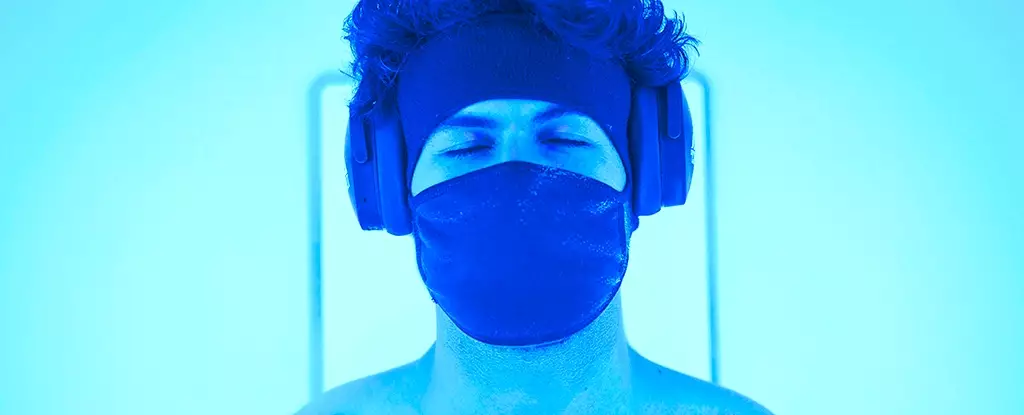In an innovative stride toward enhancing sleep quality, a recent study spearheaded by researchers at the University of Poitiers suggests that utilizing a cryostimulation chamber for just five minutes each day could lead to profound improvements in sleep patterns and overall mood. This study presents an exciting possibility for individuals grappling with sleep disorders, chronic inflammation, or early cognitive decline. Although the concept of plunging oneself into a cryogenic environment — with temperatures plummeting to -90 °C (-130 °F) — might sound extreme, the findings indicate that this radical approach could usher in a new era of therapeutic practices.
The research involved 20 healthy volunteers, predominantly young adults averaging 23 years of age, over a span of five days. Participants engaged in brief daily sessions in the cryostimulation chamber, deliberately maintaining their usual daily routines while abstaining from substances known to interfere with sleep, such as alcohol and caffeine. This stringent control provided a clean slate to measure the physiological and psychological responses elicited by the cryostimulation. Overnight, the subjects were equipped with an array of sensors to meticulously track brain and heart activity, allowing researchers to gauge changes in sleep quality accurately.
Researchers discovered significant enhancements in sleep architecture, particularly in the duration of slow-wave sleep — often referred to as the “deep sleep” phase crucial for memory consolidation and physical restoration. Specifically, they observed an average increase of 7.3 minutes during the initial sleep cycles following cryostimulation, indicating a notable restorative benefit.
An intriguing aspect of the study was the differential response observed between male and female participants. The researchers indicated that the cold exposure resulted in distinct improvements in mood and anxiety reduction among women. Lead researcher Olivier Dupuy emphasized the need for further investigation to understand these gender-specific reactions better. Acknowledging this variance suggests that future protocols for cryostimulation might benefit from personalization, potentially maximizing its effectiveness based on gender-related physiological differences.
While the study demonstrated several positive outcomes, it is equally important to consider some limitations. The researchers noted that not all parameters of sleep were influenced by cold exposure. Factors such as sleep onset latency and the duration of REM sleep remained unchanged, hinting at the complexity of sleep processes which cryostimulation may not address fully.
Beyond the immediate benefits to sleep quality, the implications of cryostimulation extend further. Previous research has established context for whole-body cryotherapy (WBC) in promoting cardiovascular recovery post-exercise and mitigating inflammation. As uncovering further health benefits becomes a priority, this study aligns with a rich historical precedent dating back to ancient Greece, where cold therapies were utilized for healing purposes.
This research carries the potential to inform therapeutic strategies for those suffering from unexplained sleep disturbances, inflammation, and even cognitive decline. If the positive effects of cryostimulation on sleep quality are confirmed in larger and more diverse populations, it could represent a game-changer in both clinical and sports recovery settings. The prospect of better sleep through such unconventional methods could redefine standard practices in wellness and performance recovery.
As the quest for better sleep continues to be a critical focus in health research, the findings from the University of Poitiers undoubtedly open doors to fascinating new avenues. While initial results are promising, they underscore the necessity for extended research that delves deeper into the mechanistic links between cryostimulation and sleep efficacy.
In an era where sleep disturbances are increasingly pervasive, harnessing alternatives such as cryotherapy could mark a pivotal progression in holistic well-being. The chilling pursuit for better sleep just might begin with a daily plunge into cold — a recommendation worth exploring for those desperate for restful nights ahead.


Leave a Reply